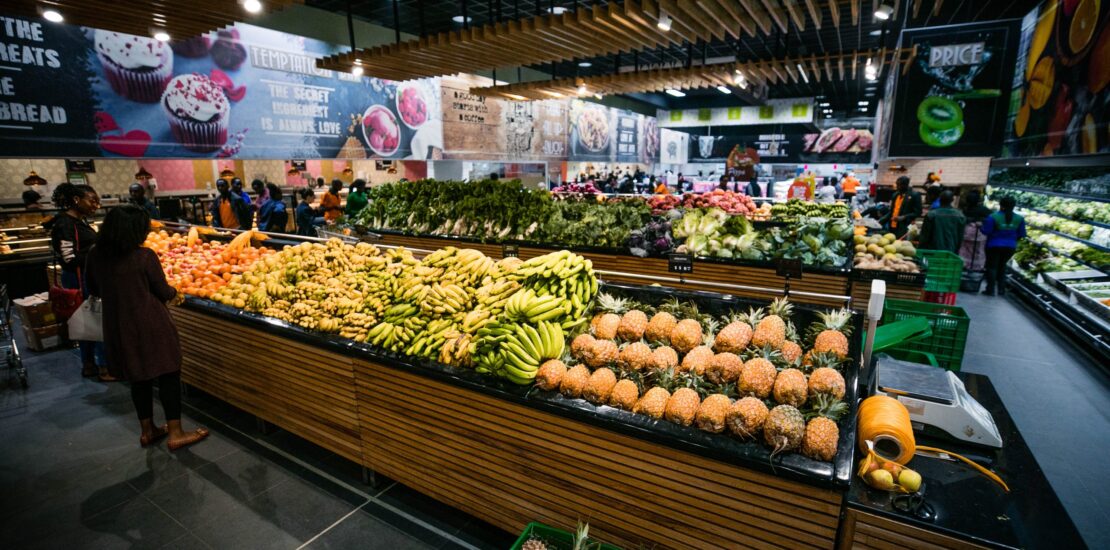News digest: Agri-food markets & production
- 16/12/2020
- Posted by: Gaetan Dermien
- Category: Africa, Caribbean, News, Pacific

MARKETS: AFRICA
Kenya and UK sign trade deal
Kenya and the United Kingdom have formally signed a trade agreement ending an era of doing business through protocols of the European Union, from which London will exit at the end of December (FPC Fresh Talk Daily, 9 December). The agreement provides for Kenya’s duty-free, quota-free access to the UK market on specified products, which currently include coffee, tea, fresh vegetables and cut flowers. The deal has also simplified the Rules of Origin, making it easier for Kenya to export to UK processed items whose raw materials have been sourced from other developing countries, as long as there is proof the items were produced in Kenya.
Kenya: partnership to strengthen agricultural insurance
ZEP-RE, Africa’s leading reinsurer, will acquire a 56% majority stake in ACRE Africa (Agriculture and Climate Risk Enterprise Ltd), a social impact company supported by the Grameen Crédit Agricole Foundation since 2014 (La Veille Agricole, 11 December). This agreement paves the way for the expansion of agricultural insurance for smallholder farmers in Africa, as it will strengthen ACRE Africa’s wide range of products and technology platforms for agriculture and microinsurance.
Kenya: distribution of solar irrigation pumps
Founded in 2013, Kenyan start-up SunCulture, which supplies solar water pumps for irrigation, has just completed a financial mobilisation that has raised $14 million (La Veille Agricole, 11 December). The funds were raised from four investors: Energy Access Ventures (EAV), Electricité de France (EDF), Acumen Capital Partners (ACP), and Dream Project Incubators (DPI). The purchase price of this water pump is between US$500–1,000, and SunCulture wants to distribute its solar water pumps in Côte d’Ivoire, Ethiopia, Senegal, Togo, Uganda and Zambia.
Rwanda: African Centre of Excellence on Sustainable Cooling and Cold Chain
Rwandan authorities have launched the African Centre of Excellence of Sustainable Cooling and Cold Chain (ACES), which will be hosted by the University of Rwanda (La Veille Agricole, 11 December) in collaboration with the University of Birmingham (UK) and the United Nations Environment Programme (UNEP) United for Efficiency (U4E) project. Together with commercial partners, the centre will aim to develop and promote affordable, ultra-low carbon cooling systems and cold chains adapted to African social and economic needs, particularly in the agriculture and agri-food sector.
Statistics on African trade
According to the latest African Union (AU) report on Africa’s external trade, the continent accounts for only 2.7% (US$1,031 billion) of world trade (La Veille Agricole, 27 November). Between 2013 and 2019, the ratio of exports of goods to imports of goods fell from 98.5% in 2013 to 83.1% in 2019. While strengthening intra-African trade remains a priority for the AU, its share remains very low, averaging 13% of imports and 20% of total exports over the period. Trade with the rest of the world represents 75% of total trade (US$495 billion of imported goods for US$ 372 billion of exports). With 16% of exports and 19% of imports in 2019, China remains by far Africa’s main trading partner.
Burkina Faso can export products to China duty-free
Under a trade agreement between Burkina Faso and China, Burkinabe products can now enter China duty-free through the issuance of a certificate of origin (Commodafrica, 18 November). As a result, 97% of Burkinabe products exported to China will be exempt from customs duties. Cashew fruits and nuts occupy third place, and sesame seeds fifth place, in terms of exports. Europe remains the first destination for Burkina Faso’s exports, followed by Asia and African countries.
Cameroon: Protected Geographical Indications
The Ministry of Mines, Industry and Technological Development (MINMIDT) has selected four products, including three agricultural products, to obtain Protected Geographical Indication (PGI) in 2021 (Invest in Cameroon, 10 December 2020). They are red cocoa; green eastern mango (Ndôô), prized for its special flavour; and Bafia pineapple. These products follow on from the already labelled Oku white honey and Penja pepper.
Côte d’Ivoire: ‘She Trades West Africa’
In partnership with the International Chamber of Commerce, the Chamber of Commerce and Industry of Côte d’Ivoire launched the ‘She Trades West Africa’ project in mid-November (Commodafrica, 27 November). It aims to strengthen 24 SMEs and cooperatives run by Ivorian women working in the cashew nut, shea and cassava sectors.
Liberia–Morocco cooperation
In November Liberia and Morocco signed three bilateral agreements to strengthen their cooperation in scientific education and research, health, and agriculture (Commodafrica, 9 November). In the agriculture sector, the agreement establishes a 5-year framework with exchanges of experience, technical cooperation and capacity building, particularly in farm mechanisation, animal health, development of entrepreneurial skills for MSMEs, and soil fertility.
Madagascar: Start of the lychee campaign
In the week 30 November to 4 December, lychees from Madagascar arrived by boat in France, transported by the Baltic Klipper (Fresh Plaza, 9 December). The price on the French market is around €3.10–3.20 per kg, but is expected to rise quickly.
Namibia exports grapes to Europe
The Namibian table grape export season began in mid-November with the first container shipments to Europe via the port of Cape Town (Eurofruit, 23 November). The Namibian industry is optimistic and expects to reach its target of around 7.5 million cartons this season. Over the past few years, export volumes have been steady at around 6.5 million cartons, with a forecast of 10 million cartons by 2020.
Zambia exporting fresh blueberries to China
Zambia’s President has presided over a ceremony to launch the export of fresh blueberries from Zambia to China (Eurofruit, 13 November). Zambia is the latest country to gain access to China for blueberries, marking the culmination of a 3-year process after the first request for access in 2017. Southern Africa currently accounts for 6% of the world’s blueberry planted area.
MARKETS: GLOBAL
European sweet potato market
There is currently a reasonable supply of sweet potatoes on European markets, not just from European countries but also from suppliers such as Egypt and the southwestern USA (Fresh Plaza, 4 December). Many European countries have a modest harvest of their own available, and in countries such as Germany the domestic acreage is expanding. Despite the loss of the demand from the food service sector, retailers are absorbing good volumes. The price has risen almost everywhere due to the coronavirus. A political factor also plays a role in world trade: the EU has imposed import duties on sweet potatoes from the USA, among other products. The levies have thus increased from 3% to 28%.
MARKETS: EU
Spain: organic wholesale market reopens
Mercabarna (Barcelona Wholesale Market) has announced the opening of Biomarket, Europe’s first wholesale market dedicated exclusively to organic fruit and vegetables, and the first wholesale market for organic food in Spain (Eurofruit, 23 November). The 8,900 m2 hall was built to meet growing consumer demand for organic products in Catalonia. It houses 21 sales outlets (16 for wholesale companies, two for agricultural cooperatives and three for multi-product wholesalers), and a space dedicated to small farmers.
UK: EU recognises UK organic sector
The European Union will recognise British organic products after the end of the Brexit transition period (Fresh Produce Journal, 4 December). This means that the six UK organic certification bodies will continue to be recognised for a further 12 months to the end of 2021. The UK is the ninth largest organic market in the world and sales of organic products to the EU amount to £225 million each year. However, in the post-Brexit negotiations no agreement has yet been reached on the long-term mutual recognition of EU and UK organic standards.
UK: one-third of fruit and vegetables imported from climate-vulnerable countries
According to a new study by the London School of Hygiene and Tropical Medicine, 9 November), published in the journal Nature Food, in the UK the national contribution to the total supply of fruit and vegetables fell from 42% to 22% between 1987 and 2013. Over the same period, imports of fruit and vegetables from countries vulnerable to climate change increased from 20% to 32%. The range of fruit and vegetables imported into the UK has increased, with tropical fruits becoming more popular.
France: mass retail sector charter to promote fresh and local products
The Ministry of Agriculture and Food, and the Ministry of the Economy, Finance and Economic Recovery, have launched a commitment charter to promote fresh agricultural and local products in supermarkets (Médiafel, 16 November). The aim is to promote access for the greatest number of people to healthy, safe, sustainable and local food, as a complement to other distribution channels. The major retail chains, which account for 70% of food purchases, have signed the charter.
UK: Two in five grocers see falling sales volume
More than 40% of UK food shops have seen a drop in their sales volume, and city centre outlets have lost market share to competitors in the suburbs (Fresh Produce Journal, 1 December). A Nielsen study states that overall growth in sales of fast-moving consumer goods (FMCG) is currently averaging around 8% year-to-date in the UK. In 2019, 20% of UK retail outlets accounted for 80% of FMCG sales; in 2020 this figure has fallen to 19% as demand shifts to other consumer locations. Covid-19 restrictions have resulted in losses in high-density inner city areas and gains for shops in residential areas.
PRODUCTION: AFRICA
Niger launches its Smart Village Project
At the beginning of December Niger’s National Agency for the Information Society (ANSI) launched the ‘Intelligent Villages for Rural Growth and Digital Inclusion Project’ (Commodafrica, 9 December). With a budget of FCFA 58 billion (€88.3 million), this 6-year project aims to connect 2,111 rural villages to mobile telephony and broadband internet services.
Nigeria: $2 billion for smallholder farmers
The African Union’s New Partnership for Africa’s Development (AUDA-NEPAD) has announced the funding of a $2 billion project to empower smallholder farmers and strengthen food production, local consumption and exports (Commodafrica, 11 December). The project is being implemented in partnership with state governments, the Central Bank of Nigeria, and the Federal Ministry of Agriculture. Of Nigeria’s 36 states, 22 have been selected as pilot states.
Senegal: 2021 agriculture budget up 12.4%
For 2021, the budget of the Ministry of Agriculture and Rural Equipment (MAER) will grow by 12.41% to FCFA 170.915 billion (€269.6 million) compared to 2020 (Commodafrica, 12 November). However, as this is 4.3% of the overall budget, the 10% aim of the Maputo Declaration has not been reached.
Senegal’s agropolitical and industrialisation policy
The North, Central and South Agropoles are the flagship projects of the Emerging Senegal Plan (Commodafrica, 18 November). The Central Agropole, which brings together the regions of Diourbel, Kaolack, Fatick and Kaffrine, should become a reality in April 2021, thanks to the support of Belgian Cooperation (Enabel). The three priority sectors chosen are groundnuts, cereals and salt. Agropole Sud will be operational before the end of 2022; and for Agropole Nord commissioning is planned before the end of 2024.


![EU and GB approval changes (January-March 2025) 9-FFM+-[ENG]](https://news.colead.link/wp-content/uploads/2024/06/9-FFM-ENG-150x150.jpg)